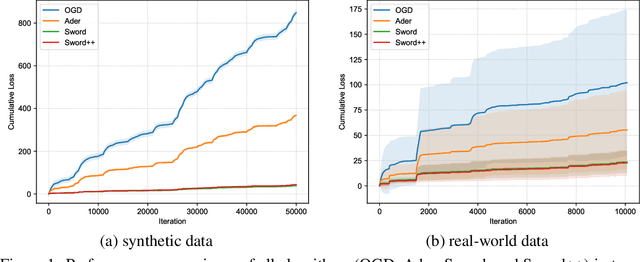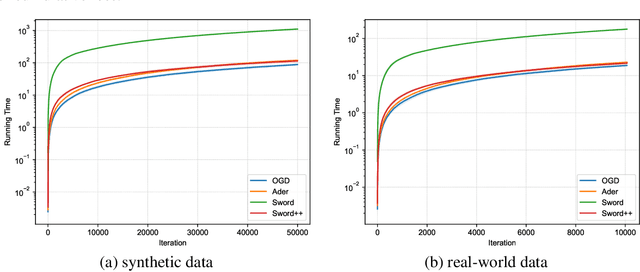Adaptivity and Non-stationarity: Problem-dependent Dynamic Regret for Online Convex Optimization
Paper and Code
Dec 29, 2021

We investigate online convex optimization in non-stationary environments and choose the \emph{dynamic regret} as the performance measure, defined as the difference between cumulative loss incurred by the online algorithm and that of any feasible comparator sequence. Let $T$ be the time horizon and $P_T$ be the path-length that essentially reflects the non-stationarity of environments, the state-of-the-art dynamic regret is $\mathcal{O}(\sqrt{T(1+P_T)})$. Although this bound is proved to be minimax optimal for convex functions, in this paper, we demonstrate that it is possible to further enhance the guarantee for some easy problem instances, particularly when online functions are smooth. Specifically, we propose novel online algorithms that can leverage smoothness and replace the dependence on $T$ in the dynamic regret by \emph{problem-dependent} quantities: the variation in gradients of loss functions, the cumulative loss of the comparator sequence, and the minimum of the previous two terms. These quantities are at most $\mathcal{O}(T)$ while could be much smaller in benign environments. Therefore, our results are adaptive to the intrinsic difficulty of the problem, since the bounds are tighter than existing results for easy problems and meanwhile guarantee the same rate in the worst case. Notably, our algorithm requires only \emph{one} gradient per iteration, which shares the same gradient query complexity with the methods developed for optimizing the static regret. As a further application, we extend the results from the full-information setting to bandit convex optimization with two-point feedback and thereby attain the first problem-dependent dynamic regret for such bandit tasks.
 Add to Chrome
Add to Chrome Add to Firefox
Add to Firefox Add to Edge
Add to Edge